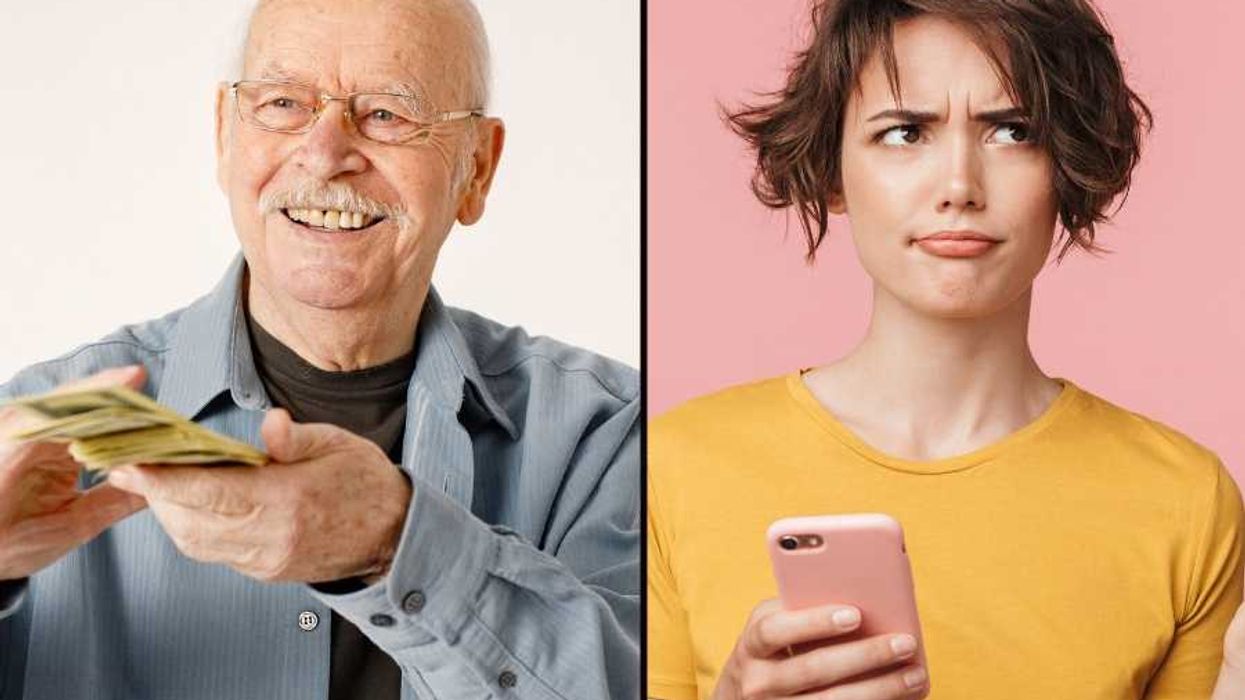Zainab Johnson's first big break in comedy—in small part—is thanks to a pair of designer boots.
“I started working for a guy who produced comedy shows,” she recalls. “I was like a nonworking actress in Los Angeles and this guy called me and asked if I could work for him as his office assistant. And the only thing that made me say ‘yes’ at that moment is that I wanted these Chloé boots.”
Johnson had no idea where she'd get the $1,500 to pay for them. She breaks into a sly giggle. “And I thought, Well, I can either prostitute, entertain a rich man, or I could go be this office assistant for a few days.”
She chose the latter, of course, and those few days turned into invaluable exposure. That was six years ago, and it's worked out pretty great.
The stand-up comic and actress first catapulted to fame in 2014 as a semifinalist on NBC's competition series, Last Comic Standing, and she has performed at premiere comedy clubs around the country. Her film and TV credits include HBO, MTV, and ABC's Private Practice, as well as her stand-up special, “Model Citizen,” which is available on iTunes.
In person, Johnson is disarming in the best way possible. She's the type to lean in and touch your knee when getting to a good part of a story, the soft rasp of her New York accent drawing you in. And she's funny—"a mix of intellect, wit, class, and hood" by her own admission.
“My goal, when I'm on stage, is to invite you into what should feel like my living room, and we have a good time. And when I get off stage, it's like you're leaving, and hopefully you want to come back,” she says.
When you get offstage, there are stressful downsides to comedy. There's the late night hours, the often unstable income, and the intense competition among your peers. Then, of course, there's the cruel reality that nobody may laugh at your jokes.
“I feel like I'm a storyteller in a sense,” she says. “There's some people in the audience who live in my world. Like, their world is so close to mine that they're like, ‘Oh, my God, yes, somebody is telling my story.’ Then there are people who have never experienced it and they're like, ‘Oh, my God, is that your world? That's so interesting.’ Or ‘I want to know more.’”
Ten years ago, Johnson was living in Harlem. She had earned a college degree in mathematics and was considering teaching, but after her father passed away, she gained the courage to head west to pursue acting in Hollywood.
After taking the assistant job, she found herself surrounded by talented comedians and inadvertently studied their performances to learn what worked on stage and what didn't. It led her to perform (and strike out) at small open mic nights around Los Angeles.
Seasoned veterans will tell you that it's hard to make a steady living in comedy. Most open mic nights pay nothing. In fact, performers often pay a small fee to get in the door. Comedians are independent contractors, and making money can be a full-on hustle from month to month.
[quote position="full" is_quote="false"]You can work and make nothing for 10 years, and then you can become Kevin Hart and make $89 million in one year[/quote]
“I think the beauty of comedy is that you can work and make nothing for 10 years, and then you can become Kevin Hart and make $89 million in one year,” she says. “If you did a club (performance), you can make nothing. You could be performing just because you actually want to perform on stage.”
At the middle tier, Johnson says, “You could be making $1,500 a weekend consistently, which is not bad. Think about that: You're making $6,000 a month. At the end of the year, you're at $72,000 before taxes, which is pretty good. And then you could be selling out theaters or stadiums and, like I said, be making millions.”
In reality, like anyone living the #freelancelife, finding a balance is key. Johnson says that some months she could bring in a lot of money (many thousands of dollars, say), but it’s crucial to understand that she doesn’t know what the following month will bring.
“There have been years when I was filing my taxes wishing I had a dependent so that I wouldn’t have to owe so much, and that's a good thing. And there have been years when I was like, ‘I am way below poverty level,’” she says, letting out her signature raspy cackle.
Johnson is now set to star in a TV comedy series in development with ABC and loosely based on her life, in which she'll play a Muslim model approaching her 30th birthday. With her career hitting the skids, her character is forced to re-evaluate her life as she moves back in with her family, finding support in unexpected ways.
“It's about my life,” she begins. “You know, I'm a Muslim woman, although I don't cover up, and I feel like the world has a very narrow view of Muslims, period. And it's usually negative, and it's usually uninformed. And it's usually skewed toward the Middle Eastern culture. So (on the show) it's that I'm African-American and I'm Muslim, and what that means in my profession, and what that means as a 30-year-old woman who is single or not single.”
In addition to the financial stability the show will provide for Johnson, it will give her the platform to do what she does best: make people laugh, think, and feel.






















